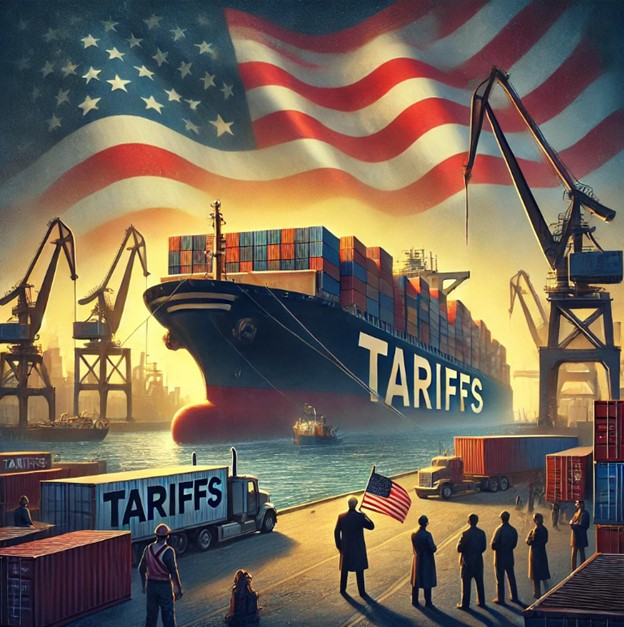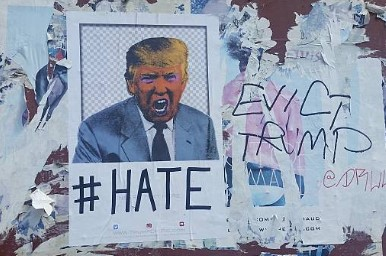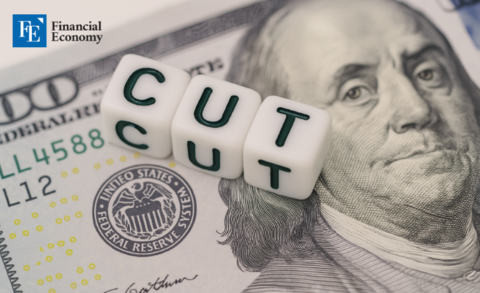Trump’s Diplomatic Crisis: A World at Odds and a Presidency in Peril
Input
Modified
Putin, Ukraine, and a Dealmaker's Dilemma Tariffs, Allies, and the Fracturing of Global Trust A President Adrift in a World He Tried to Command

Putin, Ukraine, and a Dealmaker's Dilemma
Donald Trump’s presidency, characterized by bold and often controversial moves, has once again caught the world’s attention. But this time, it isn’t his personal style or brash rhetoric making headlines; it’s his increasingly tense and hostile relationships with global powers. After months of bold political posturing, President Trump’s approach to foreign diplomacy seems to have reached a tipping point. Trump’s recent outbursts, particularly his displeasure with Russian President Vladimir Putin, mark a critical juncture. His frustration with Putin, his threats to impose tariffs on adversaries, and his deteriorating relationships with former allies are beginning to create a diplomatic crisis of monumental proportions.
At the heart of this growing discontent is Trump's anger toward Putin over ceasefire negotiations related to the ongoing conflict in Ukraine. Trump, ever the dealmaker, seems to find himself in a precarious position. Having invested considerable political capital in his push for Ukraine to receive support, Trump now finds that he has little leverage. Ukraine, economically battered and politically unstable, cannot provide what he needs. In this, Trump sees an opportunity to push for compensation, but his primary interlocutor, Putin, is proving less than cooperative. As Trump seeks ways to balance his foreign policy ambitions with economic pragmatism, he is clearly frustrated by Putin's resistance. Putin, ever the strategist, has no intention of yielding to what he perceives as a flawed negotiation tactic, especially when Russia has not lost the war and sees no incentive to concede.
Trump’s frustration with Putin is not an isolated incident. In fact, it reflects a broader pattern of strained international relations. In recent developments, Trump’s threats to impose tariffs on Russia’s oil exports have drawn attention, and many are watching closely how major global players like China and India will react. Trump’s reliance on the international response to his tariff policy is crucial. As global powerhouses, China and India wield significant influence in the world’s oil markets. Trump’s oil tariff threat depends largely on these nations’ willingness to fall in line. A failure to do so could lead to a major economic rift between the U.S. and its trading partners, and with Trump’s tenure nearing its peak, such confrontations could significantly alter the global economic landscape.
But it’s not just Putin who is feeling Trump’s ire. In recent weeks, Iran has become another point of contention. As tensions flare over a range of issues, from nuclear proliferation to regional conflicts, Trump’s rhetoric has become increasingly combative. His policies towards Iran, particularly regarding the nuclear deal and the U.S.’s military presence in the Middle East, are now taking on a more aggressive tone. Iran has long been a thorn in Trump’s side, but the relationship seems to be heading toward a dangerous precipice. Trump’s latest threats of sanctions or military action over Iranian activities could create a tinderbox in a region already fraught with instability. The U.S. president's posture towards the Islamic Republic is, if anything, marked by increasing brinkmanship, and there is little doubt that this standoff will define much of his foreign policy in the months ahead.

Tariffs, Allies, and the Fracturing of Global Trust
Meanwhile, Trump’s rhetoric is sending shockwaves through Europe, particularly among European Union leaders. Long-time allies are growing weary of Trump’s unpredictability and his lack of regard for established diplomatic norms. His comments criticizing Ukraine’s President for allegedly ruling him out as a mediator, his decision to minimize support for the World Trade Organization (WTO), and his dimming support for NATO are not only alienating Washington’s traditional allies but also undermining a significant portion of the international order. The rift between the U.S. and Europe is deepening, and leaders across the continent are becoming increasingly frustrated with Trump’s divisive tactics. As the April 2 deadline for new tariffs looms, tensions are rising between the U.S. and European powers, further exacerbating the divide.
The economic side of Trump’s diplomacy is also increasingly contentious. The U.S. president’s decision to threaten tariffs on countries such as China, Mexico, Canada, and even South Korea—nations that are significant players in the global trade network—is beginning to take a toll. For these countries, who rely on open markets and trade deals, Trump’s tariff policies are seen as a direct threat. By pushing back against free trade principles, Trump risks isolating the U.S. economically at a time when global markets are becoming ever more interconnected. The imposition of tariffs will likely hurt U.S. businesses, damage trade relations, and destabilize global markets. As April 2 approaches, the deadline for Trump’s latest tariff imposition, the world will be watching with bated breath to see if he follows through with these policies. If he does, the ripple effects will be felt for years to come.
What is particularly troubling is the domino effect that Trump’s approach to diplomacy is creating. First, it was Ukraine, where Trump’s conditional support left him at odds with the Ukrainian president, who was determined to pursue a diplomatic path without Trump’s interference. Then came the threat to minimize U.S. support for the WTO, signaling a withdrawal from multilateral trade agreements. This alienated European leaders who rely on the stability and security that the WTO offers. With every passing day, Trump’s foreign policy blunders pile up, pushing the U.S. further away from its allies and increasingly toward the fringes of global diplomacy.
Trump’s domestic political agenda has also increasingly been shaped by his foreign policy decisions. The upcoming tariff impositions, along with growing pressure from global adversaries, have added fuel to an already contentious political climate. His administration has been focused on balancing economic growth with a hardline stance against perceived adversaries. This policy, while appealing to certain parts of the U.S. electorate, risks further isolating the country on the world stage. As China, Mexico, Canada, and other key partners brace for the effects of Trump’s tariff policies, the U.S. may find itself embroiled in an economic struggle that it cannot easily win.
In the coming weeks, Trump’s foreign policy challenges will only escalate. The looming April 2 tariff deadline, the continuing tensions with Russia, and the standoff with Iran will put Trump’s diplomatic resolve to the test. Yet as Trump faces mounting pressure from both domestic and international sources, one thing is clear: he is on the verge of losing any remaining allies abroad. His combative approach to diplomacy, which once appeared to be a strength, is now an albatross, dragging the U.S. into a diplomatic abyss.

A President Adrift in a World He Tried to Command
What is clear now is that Trump is creating a world in which every major international player is at odds with the United States. His handling of Ukraine has alienated the European Union and NATO, while his tariff policies are sparking a trade war with some of the world’s largest economies. His dealings with Russia, once seen as a possible avenue for cooperation, have now soured beyond repair. Meanwhile, Iran stands in defiance against U.S. pressure, and China, Mexico, and Canada are bracing for more economic fallout.
With Europe upset, Russia refusing to back down, Iran under threat, and China, Mexico, and Canada preparing for economic fallout, Trump seems poised to alienate every major player in the international community. It’s a situation that’s quickly becoming untenable. If Trump continues on this path, it won’t be long before he finds himself without any friends left in the world—a president surrounded by enemies and isolated from the global community.
This unfolding crisis suggests that Trump’s presidency, once marked by claims of unrivaled negotiating genius, could end in a much quieter and more damaging way—surrounded by increasingly skeptical foreign leaders and a fractured international order. The world is watching closely to see whether Trump can reverse this trend or if his presidency will become defined by the very diplomatic crises he once promised to avoid.





















